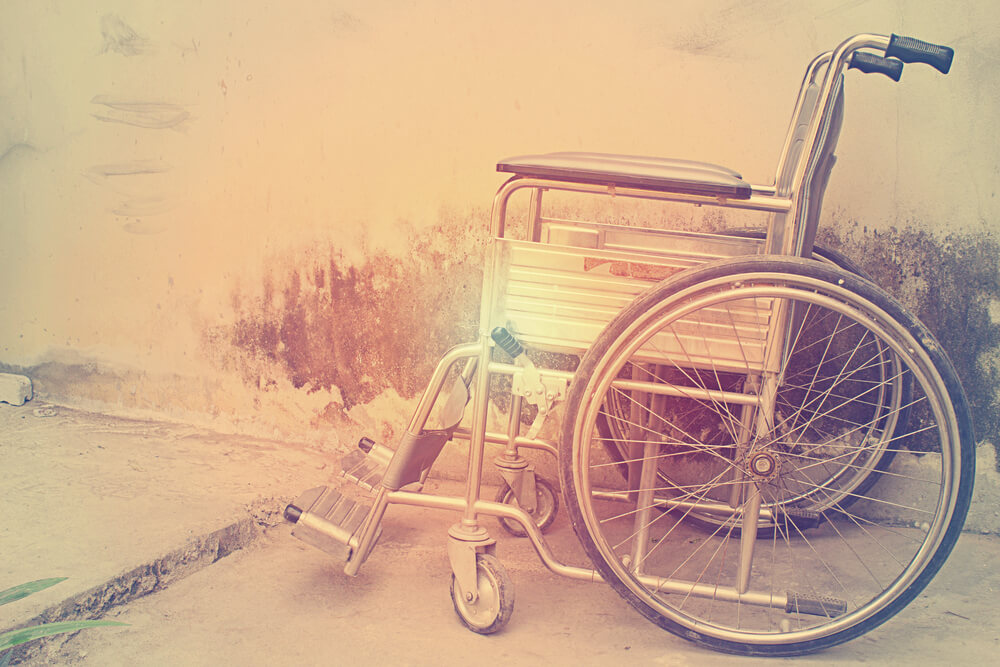Protecting Loved Ones from Nursing Home Abuse
There is a largely unreported crisis in America’s nursing homes. Aging demographics, industry consolidation, and tight labor markets have created substandard conditions in numerous facilities in Florida and throughout the country. This has resulted in countless cases of neglect and abuse among one of the most vulnerable groups in our society.
In Florida, there are just over 700 nursing facilities listed on Medicare’s Nursing Home Compare website. Of those listed, more than 200 receive either two star or one-star ratings, indicating that they are “below average” or “much below average”. In addition, 25 facilities in the Sunshine State have been cited for abuse within the past year, including two in Pensacola.
These facilities have received a red warning icon with a picture of a hand raised up in the “halt” position. This icon remains next to the facility listing for about a year, and it can remain there for up to 24 months if there are repeated violations. This is intended to warn consumers to stay away from these places, and to (hopefully) motivate the facilities to take the steps necessary to end this type of mistreatment.
The red warning icon system is a step in the right direction, but it only warns consumers after the fact – after a violation has already occurred and the facility has been cited for it. The problem is that much of the abuse and neglect that goes on is happening under the radar and is never uncovered.
According to estimates by the National Council on Aging (NCOA), only about one out of every 14 cases of elder abuse is ever formally reported to authorities. It is not hard to understand why that would be the case. Nursing home patients are totally dependent on their caregivers to provide for even their most basic needs, and many of them rightfully fear that things will get far worse for them if they report abuse and nothing is done about it.
This means that nursing home abuse is happening far more often than most of us realize, and even if you have an aging loved one who is not in one of the poorly-rated facilities, there is still a chance that this could be happening (to your loved one) without you even knowing it. Many of these abuses even result in the death of an innocent victim.
How to Protect Aging Family Members from Nursing Home Abuse
Our parents sacrificed a lot to raise us, protect us from harm, and prepare us to go out into this world and pursue our dreams. During their waning years, the least we can do is to make sure they are protected from harm as well.
Here are some important steps we can take to protect our aging loved ones from nursing home abuse:
Be Present
Sadly, some nursing home residents do not have visitors very often. When this is the case, there is a much greater chance of neglect and abuse occurring. One of the simplest ways to help ensure that this does not happen to your loved one is to show up and visit on a regular basis. We are all busy, and if you have siblings or other family members that can also commit to visiting, it makes it easier for everyone. Develop a regular visiting schedule, whether this is once a week, every other week, once a month, or whatever you can do. In addition, include some irregular visits in order to stay less predictable and help make sure that the caregivers and staff are always on their best behavior.
Stay Engaged
When you visit, get to know the people who are looking after your loved one, and make sure they fully understand all of your concerns. Ask for meetings with supervisors and the facility director, so you can discuss in detail your loved one’s care plan. When you engage with caregivers and staff at this level, they will understand how much you care, and they will be far more motivated to look after your loved one.
Pay Attention
When you speak with facility staff and look around at the conditions your loved one is living in, do not necessarily take everything you see and are told at face value. Pay attention to your loved one’s physical and emotional condition, and to the answers you receive about questions or concerns you may have. If caregivers and staff seem defensive, dismissive, hostile, or if something just doesn’t seem right, this could certainly be cause for concern.
Document Everything
Whenever you come for a visit, take detailed notes about everything you see and hear. Note the condition of your loved one, the answers you have received your questions, and take photos of the facility as well. It is important to note that if you are considering installing a hidden camera, this would be a good way to obtain stronger documentation of abuse, but there is some question about the legalities of doing this in Florida.
The state of Florida prohibits recording someone’s voice without their permission. However, capturing a silent video of someone’s activities is not explicitly prohibited. Speak with an experienced nursing home abuse lawyer about your options in this regard, and how far you are allowed to go in obtaining video documentation of what is happening inside the facility.
Take Swift Action when Needed
If you have good reason to believe that your elderly loved one has been the victim of nursing home neglect or abuse, it is time to act promptly and report this to the proper authorities. In Florida, you can report abuse any time day or night by calling 1-800-962-2873 or 1-800-955-8771. If this is an emergency situation, call 911 and report the situation to the police.
Contact Whibbs, Stone, & Barnett for Legal Help
Once you have taken steps necessary to get your loved one out of immediate danger, contact Whibbs, Stone, & Barnett to discuss your legal rights and options. This is not only important in order to ensure that your loved one is fully compensated for what they have suffered, but also to ensure that those responsible for perpetrating these egregious actions (or knowingly allowing them to occur) are held fully accountable. The only way that this behavior is going to stop is if these facilities realize that it is far more costly for them to allow it to continue.
To schedule a free consultation with one of our experienced attorneys, message us online or call our office today at 1-888-219-4561. We look forward to serving you!



